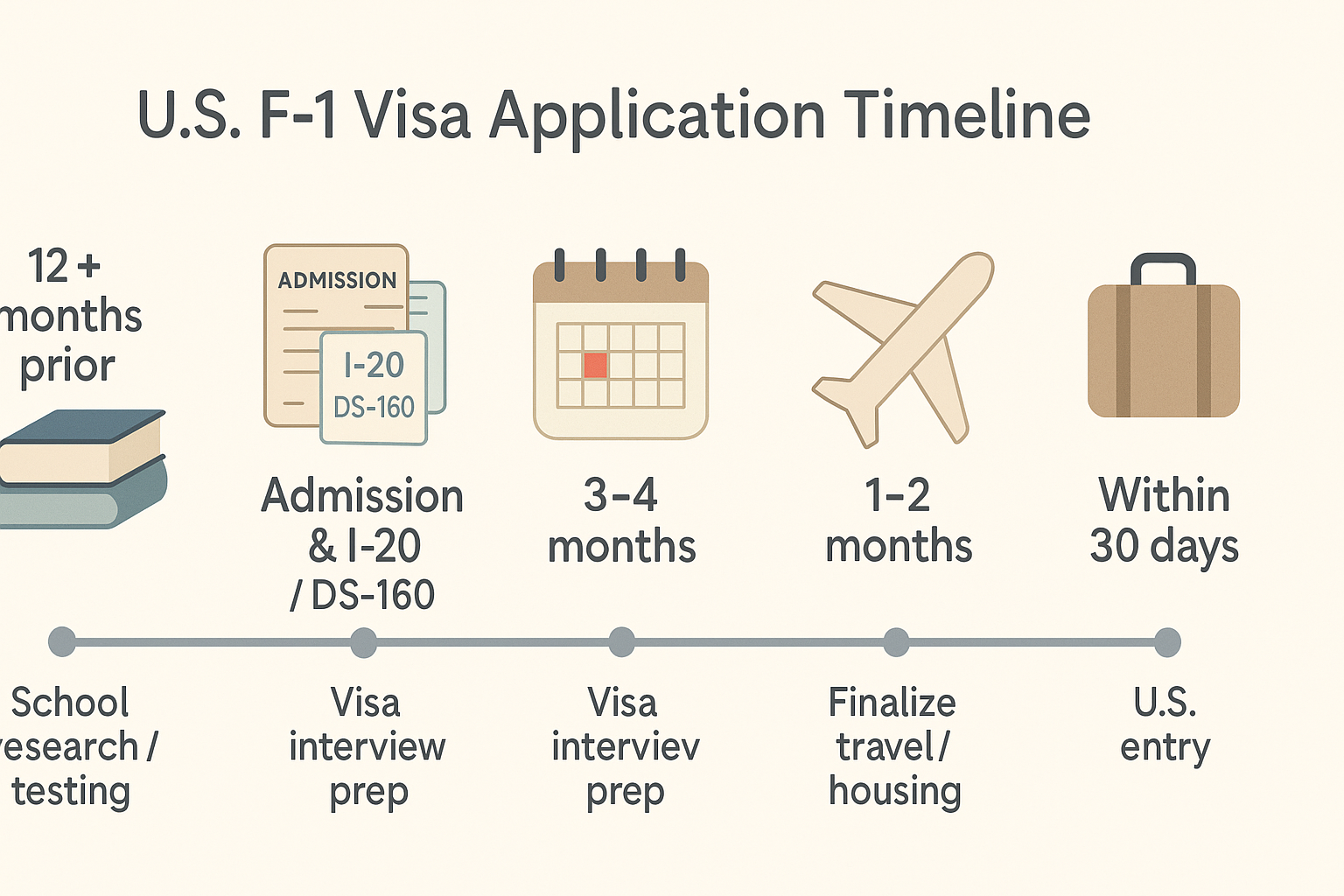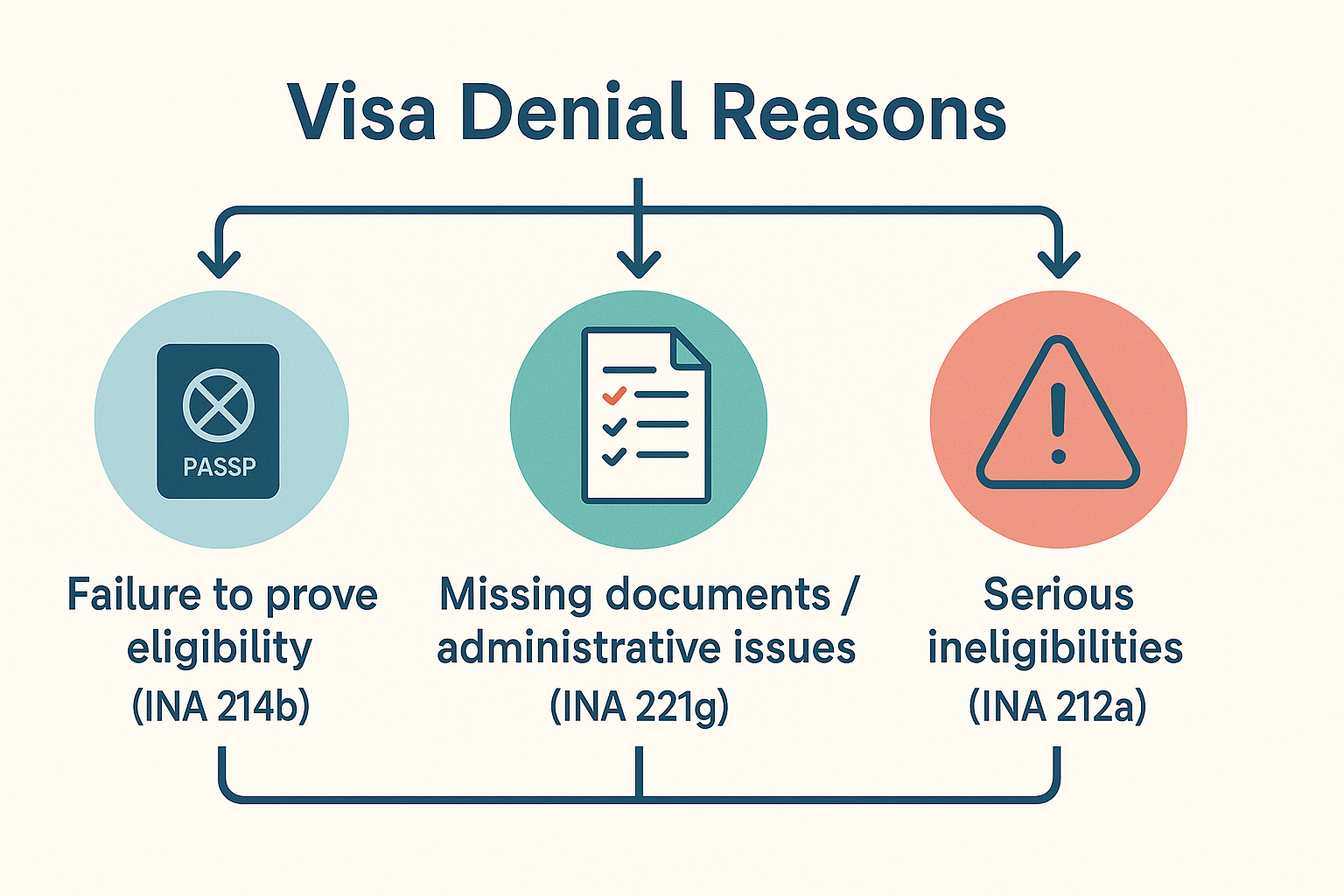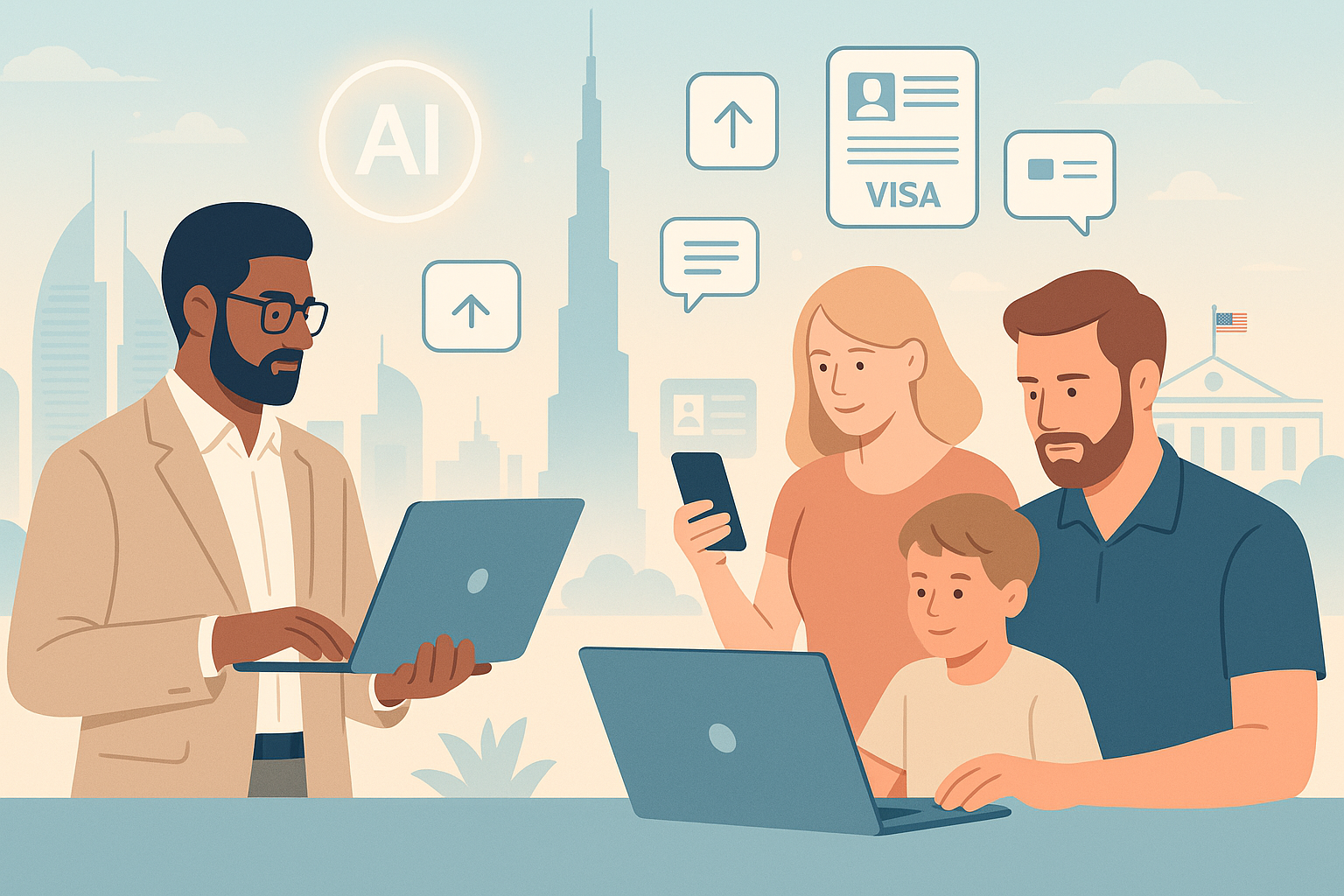Insider Perspective: What U.S. Visa Officers Look for in Applications from Dubai

For Dubai expats—professionals, parents, entrepreneurs—the U.S. visa process is a pivotal gateway to opportunity but can be daunting. This guide distills insider insights on impressing U.S. visa officers, preparing documentation, avoiding pitfalls, and understanding approval criteria, especially for B1/B2 (visitor) and F1 (student) visas. Whether you’re an established resident or a Russian-speaking expat, here’s how to turn the visa interview from a hurdle into a confident stride toward your American dream.
Table of Contents
- Understanding What U.S. Visa Officers Look For
- U.S. Visa Application Process in Dubai: Step by Step
- Key Documents Required for U.S. Visas from Dubai
- Differences Between B1/B2 and F1 Visa Approval Criteria
- U.S. Student Visa Interview Tips for UAE Applicants
- Common Mistakes on U.S. Visa Applications (for Russian Speakers & Others)
- How to Impress U.S. Visa Officers in Dubai – Insider Tips
- FAQs: U.S. Visa Applications in Dubai
- Conclusion: Your Success, Our Support
Understanding What U.S. Visa Officers Look For
Consular officers have a clear mandate: grant U.S. visas only to genuine travelers and students. They will assess all applications—B1/B2 (tourist/business) and F1 (student)—on these central grounds:
- Strong Ties to Home/Residence Country: By law, every applicant is presumed to be an intending immigrant until proven otherwise. You must demonstrate compelling reasons—such as stable employment, family, property, or long-term plans—that will bring you back to Dubai/UAE or your home country after your U.S. visit.
- Financial Stability: Officers expect clear evidence you can fund your trip or studies. Bring 6+ months of bank statements, salary slips, investments, or business financials. High-net-worth is not enough; you must document it.
- Legitimate Purpose: Clearly state why you’re going, and ensure your intent matches your profile and documents. Any mismatch (e.g., claiming tourism but having a business invitation) raises suspicion.
- Clean Background & Eligibility: Officers screen for past U.S. immigration violations, criminal records, or security flags. Previous visa refusals must be honestly explained—lying is grounds for denial and a ban.
- Consistency & Confidence: Officers form opinions quickly, often in the first minute. Know your story, answer confidently, and ensure all details match your application.
Dubai Expat Context: Third-country nationals (Indians, Russians, etc.) applying in Dubai is common. Officers will look at your ties to both the UAE and your passport country. If you’re a long-term resident, emphasize this through employment, residence visas, and family in Dubai. Short-term visitors should apply in their home country unless they have compelling UAE ties.
U.S. Visa Application Process in Dubai: Step by Step
Choose the Correct Visa Type
Most expats apply for B1/B2 (business/tourism) or F1 (student). Ensure you meet specific requirements (e.g., university admission and I-20 for F1).
Complete the DS-160 Form Online
Fill out every section accurately; errors or inconsistencies can cause delays or denials. Print the confirmation page for your interview.
Pay the Visa Fee & Schedule Interview
Pay the fee (around $185) and book your interview at the U.S. Consulate in Dubai or Embassy in Abu Dhabi. Wait times may be weeks or months—apply 3–6 months in advance.
Prepare Your Document Packet
Gather all necessary documents (see checklist below), organized and translated if needed.
Attend Interview & Biometrics
Arrive early with only your documents. Expect to submit digital fingerprints, then have a brief, focused interview. Be prepared to answer about your travel purpose, ties, and finances.
Result & Passport Collection
Most get an answer on the spot. Approved applicants get their passports back with the visa within a few days to weeks. Denied applicants receive the passport immediately and a letter explaining the reason.
Travel or Reapply
Double-check visa details in your passport before travel. If denied, reflect on what went wrong and take steps to address it before reapplying.
Key Documents Required for U.S. Visas from Dubai
Well-prepared documentation is critical. Missing or incomplete documents are a leading cause of rejection. Here’s your essential checklist:
- Valid Passport: 6+ months validity beyond your stay, plus previous passports with visas/stamps if available.
- UAE Residence Visa or Emirates ID: Proof you’re a legal UAE resident.
- DS-160 Confirmation Page & Appointment Confirmation: Required for entry to the interview.
- Visa Fee Receipt
- Compliant Passport Photo: 2×2 inch, white background; bring extra hardcopies.
- Supporting Documents:
- Proof of Financial Means: Recent bank statements, salary slips, employment letter, business financials, investment statements, property documents.
- Proof of Ties to UAE/Home: Employment letter, tenancy contract, family certificates, business ownership.
- Travel Itinerary & Invitations: Flight/hotel bookings, U.S. invitation letters.
- Education & Professional Documents: Diplomas, transcripts, admission letters (I-20 for F1), SEVIS fee receipt, test scores (as needed).
- Previous U.S. Visas/Travel: Bring old passports or visa documentation.
- Translations: All non-English documents (Russian, Arabic, etc.) require certified translations.
Tip: Organize documents by category in a folder. Officers may not ask to see everything, but being prepared shows professionalism.
Differences Between B1/B2 and F1 Visa Approval Criteria
Summary:
- B1/B2: Emphasize strong ties and short, clear purpose.
- F1: Demonstrate academic seriousness, clear funding, and future plans that lead back to UAE/home.
| Criteria | B1/B2 Visitor Visa | F1 Student Visa |
|---|---|---|
| Primary Purpose | Short-term tourism/business | Academic study |
| Duration | Weeks to max 6 months | Several years (study) |
| Key Evidence | Strong socio-economic ties | Academic intent, preparedness, and ties |
| Financial Proof | Enough for trip, stable status | Sufficient for tuition, living expenses for at least the first year |
| Documentation | Basic + supporting ties | Mandatory: I-20, transcripts, financials, SEVIS receipt, etc. |
| Interview Focus | Travel purpose, ties, return intent | Study plans, funding, ties, future plans |
| Non-Immigrant Intent | Must prove intent to return | Also must prove intent to return |
| Other Considerations | Interview is brief, concise answers vital | May be more detailed, check social media, academic readiness emphasized |
U.S. Student Visa Interview Tips for Applicants from the UAE
- Practice English Communication: Interview is in English; practice responses, especially if English is not your native language.
- Know Your Program & School: Be ready to explain why you chose your university and how it fits your future.
- Emphasize Ties & Intent to Return: Even as a student, highlight family, job offers, or business in UAE/home country that will bring you back.
- Be Clear on Funding: Show who is paying for your education and provide all supporting documents upfront.
- Positive Body Language: Eye contact and confidence matter more than perfect grammar. Ask for clarification if needed.
- Connect to UAE if Relevant: If you plan to return to UAE, say so clearly.
- Keep Up with New Regulations: Officers may check your social media; ensure your online presence matches your application.
Common Mistakes on U.S. Visa Applications (for Russian Speakers & Others)
- Incorrect/Inconsistent DS-160 Form: Misspellings, wrong order of names, incomplete fields—especially problematic with transliteration from Cyrillic. Use “N/A” where appropriate, double-check all data, and have an English-proficient reviewer look over your form.
- Missing Documents: Always bring full financial proof, employment letters, and translations. Never rely on status alone—officers judge what you present, not what they assume.
- Untranslated Documents & Language Barriers: All supporting documents must be in English. If you don’t understand a question at the interview, ask for clarification instead of guessing.
- Inconsistencies or Dishonesty: Any mismatch between forms, documents, and your answers can trigger rejection and even a ban. Always be truthful, even if past refusals or overstays exist.
- Poor Interview Preparation: Don’t assume wealth or status guarantees approval. Prepare concise, clear answers, avoid over-explaining, and dress professionally.
How to Impress U.S. Visa Officers in Dubai – Insider Tips
- Dress Professionally: Business attire signals respect; avoid extremes or overly casual clothing.
- Be Punctual & Courteous: Arrive early, be polite to everyone, and respect the process.
- Answer Concisely: Respond only to what’s asked. Short, focused answers demonstrate confidence and clarity.
- Positive Body Language: Eye contact, upright posture, and calm demeanor make a strong impression.
- Have Documents Ready & Organized: Quickly produce any requested document; a tidy folder signals readiness.
- Know Your Application: Be familiar with everything you submitted, especially if someone else helped prepare the forms.
- Honesty & Authenticity: Officers value straightforwardness. If there are past issues, address them calmly and factually.
- End on a Positive Note: If appropriate, thank the officer and briefly restate your intent to return to the UAE or home.
FAQs: U.S. Visa Applications in Dubai
Can expats (e.g., Indians, Russians) apply in Dubai? Yes. Just show legal UAE residence (visa/Emirates ID).
Is it better to apply in Dubai or home country? UAE residents should apply in the UAE. Officers understand expat contexts and look for your main ties.
How long does the process take? Filling out the form: a day or two. Interview wait: days to months. Visa stamping: 2–7 working days after approval. Apply at least 2–3 months before travel.
What if my visa was refused before? Identify and address the reason for refusal. Only reapply with new evidence or changed circumstances. Practice your interview and consider professional help.
Is travel insurance required? Not for the visa application, but highly recommended for travel due to high U.S. healthcare costs.
Should I mention family/friends in the U.S.? Be honest. Having relatives in the U.S. isn’t a disqualifier, but officers want to see your ties to the UAE/home.
Will my visa last 10 years? Depends on your passport (e.g., Indians often get 10-year B1/B2s; Russians often get 3 years). The duration of each stay is determined at entry.
How can thevisa.com help? Offering strategic consulting, document preparation, and interview coaching, thevisa.com specializes in assisting high-net-worth individuals and expats with complex cases. Support includes form-filling, translation, logistics, and personalized guidance for every step.
How can thevisa.com help with my U.S. visa application?
We’re glad you asked! thevisa.com is a Dubai-based premium visa consulting agency that specializes in exactly these kinds of situations. We offer end-to-end support for U.S. visa applicants – from strategic consulting (figuring out the best way to present your case) and document preparation (ensuring your paperwork is flawless) to interview coaching (practicing those tough questions so you go in confident). We understand the unique challenges high-net-worth individuals and their families face: complex travel histories, multiple residences, business responsibilities, or perhaps previous visa denials that need expert handling. We keep up-to-date on the latest U.S. visa regulations and trends (such as new screening procedures or policy changes) to advise you accordingly. Crucially, we provide personalized concierge support – this means we can handle appointment bookings, form filings, translations, and even accompany you (to the embassy gate) on the day of interview to smooth out any logistics (of course, we cannot join the interview itself). Our goal is to remove stress from the process and let your qualifications shine. Many clients come to us after a DIY attempt resulted in a rejection, and we help turn it around. Others use us from the start to save time and ensure success on the first go. In short, we act as your trusted partner, treating your visa application with the same care and confidentiality you expect in your business dealings. Your success is our success.
Will my visa last for 10 years?
If you’re applying with an Indian passport, you might have heard of 10-year U.S. visas. Indeed, many Indians and some other nationals are issued B1/B2 visas valid for 10 years (multiple entry). Russian nationals currently often get 3-year multi-entry B1/B2 visas (due to reciprocity agreements), and some other nationalities vary. Student visas (F1) are usually valid for the duration of the program (up to 5 years often, or sometimes issued in shorter increments depending on reciprocity). The validity length of the visa is determined by reciprocity tables – basically an agreement between U.S. and your passport country. As a UAE resident, it’s the passport that matters here, not your UAE residence. For example, an Indian in Dubai gets the same visa validity an Indian in India would get (generally 10 years for B1/B2, 5 for F1, etc.), whereas a Lebanese passport might get a shorter B1/B2 visa (maybe one year). You can check the U.S. Department of State reciprocity schedule online for your nationality. But note: the visa validity is not the same as the allowed stay per trip. A 10-year visa means you can use it for 10 years to travel, but each trip’s duration is determined by U.S. immigration at entry (and usually for tourists that’s up to 6 months per visit, as decided at the port of entry). And of course, having a long-validity visa doesn’t mean you should take up residence in the U.S.; frequent or very long stays can raise eyebrows on future entries. Use the visa responsibly.
What if I have family or friends in the U.S.? Should I mention them?
This is a common concern. The DS-160 form specifically asks about immediate relatives in the U.S. (like parents, spouse, children) and whether you have any other relatives there. Always answer these questions truthfully. Having relatives in America isn’t an automatic disqualifier, but it is something the officer will consider. If, say, your sibling is a U.S. citizen, the officer might wonder if you intend to eventually immigrate. The best approach is to acknowledge your family ties briefly if asked, and then focus on your independent plans. For example: “Yes, my brother lives in New York. I’ve visited him before and returned. My life and business are firmly in Dubai, so I have no intention of staying in the U.S. long-term.” If your trip is to visit that family member, that’s fine – just have an invitation from them and maybe evidence of their status (copy of green card, etc., if needed) to show the legitimacy of the visit. The key is to reassure the officer that while you do have connections in the U.S., you’re happy and established in your life here in UAE/home country and any visit to family is just that – a visit.
Do I need travel insurance for a U.S. visa or to travel to the USA?
For the visa application itself, travel insurance is not a requirement. Unlike Schengen visas (Europe) which require mandatory travel medical insurance, the U.S. does not ask for insurance as part of the B1/B2 or F1 visa application. However, having travel insurance (especially medical coverage) for your trip to the United States is highly recommended. The U.S. healthcare system is very expensive, and if you were to get sick or have an accident during your visit, you’d want insurance to cover those costs. So while the consular officer won’t ask for an insurance policy, for your own safety consider buying a good travel health insurance plan before you fly. (If you’re a student, many universities actually require you to have health insurance for enrollment, and they might offer or mandate their own insurance packages.)
My U.S. visa was refused before. What should I do differently when reapplying?
First, identify why it might have been refused. The most common refusal is under Section 214(b) (you’ll see this reference in the denial paper), which essentially means the officer felt you didn’t overcome the presumption of immigrant intent or didn’t sufficiently prove your case. This could be due to weak documentation, unclear purpose, lack of ties, or answers that raised doubt. When reapplying, address the previous weaknesses head-on. For example, if you applied as a tourist and got denied because you had just quit your job (hence weak ties), ensure that now you either have a stable job or have other strong evidence of ties and explain the change. If you felt nervous and didn’t answer confidently last time, practice and maybe seek coaching before the next interview. It’s often helpful to include a brief letter or note in your application explaining any significant changes since the last application (though the officer may or may not read it, it can be handed in with your passport). There’s no waiting period to reapply (except the hassle of paying the fee again), but it’s wise to only reapply when you have new evidence or circumstances to show. Otherwise, you’re likely to face the same outcome. We’ve seen many clients succeed on a second attempt once they fixed the issues – sometimes with professional guidance. And remember, maintain a positive attitude; a prior refusal isn’t a blacklist, it’s just a hurdle to overcome with a stronger case.
How long does the U.S. visa process take in Dubai?
The timeline involves a few stages. Filling the DS-160 might take a day or two as you gather info. Scheduling the interview can be the unpredictable part – wait times for an appointment can range from a few days to a few months depending on the season and visa type. For example, visitor visa (B1/B2) slots might be backed up for weeks, while student visa slots might open up more during summer rush with special scheduling. It’s best to check the current wait time on the U.S. Visa Appointment site and plan ahead. Once you have your interview, if approved, the visa stamping (passport return) usually takes anywhere from 2–7 working days in the UAE (sometimes longer if administrative processing is needed). In summary, start the process at least 2-3 months before your travel date (more if possible) to be safe. If you have an urgent need (like a business emergency or classes starting), there is a system to request expedited appointments, but those are granted only for qualifying reasons and availability.
Is it better to apply in Dubai or in my home country?
If you are a resident of Dubai/UAE, it’s usually best to apply here (Dubai or Abu Dhabi). Consular officers understand the context of UAE (like the commonality of expat life) and will consider your ties to the UAE. If you apply in your home country (say, India) while living abroad, the officer there might wonder why you didn’t apply where you live. The only time applying in your home country might be advantageous is if you have zero established ties in UAE (e.g., you just moved) but have strong ties back home – even then, you’d need to travel back for the interview. Generally, as long as you’ve lived in the UAE for a little while and have a job/family here, applying in Dubai is convenient and logical. The U.S. officers here are experienced with third-country nationals. Just make sure to clearly explain your situation (how long you’ve been in Dubai, etc.) during the interview if it comes up.
Can I apply for a U.S. visa in Dubai if I’m not a UAE citizen (for example, an Indian or Russian expat)?
Yes, absolutely. The U.S. Embassy in Abu Dhabi and Consulate in Dubai accept applications from anyone legally residing in the UAE. In fact, a large portion of U.S. visa applicants in Dubai are expats like Indians, Filipinos, Pakistanis, Russians, etc. You will need to show your UAE residence visa or Emirates ID as part of your documentation to prove you live here. Applying in your country of residence is generally recommended over applying as a tourist elsewhere. Just be prepared to demonstrate your ties either to the UAE, or to your home country – wherever your strong ties are.
Conclusion: Your Success, Our Support
Securing a U.S. visa from Dubai is a high-stakes process, but with the right approach—honest preparation, attention to detail, and clear communication—you can dramatically boost your chances. Focus on demonstrating strong ties, financial readiness, and a legitimate, well-matched purpose for your trip. Thevisa.com stands ready to be your expert partner in this journey, offering step-by-step guidance, personalized strategy, and support tailored to Dubai’s dynamic expat community. With professionalism and care, we help turn the visa process into a confident, successful step toward your American opportunities. Ready to begin? Contact thevisa.com for a private consultation and let us help you navigate the process with skill and assurance—so your dreams of the U.S. are one step closer to reality. Contact Us



